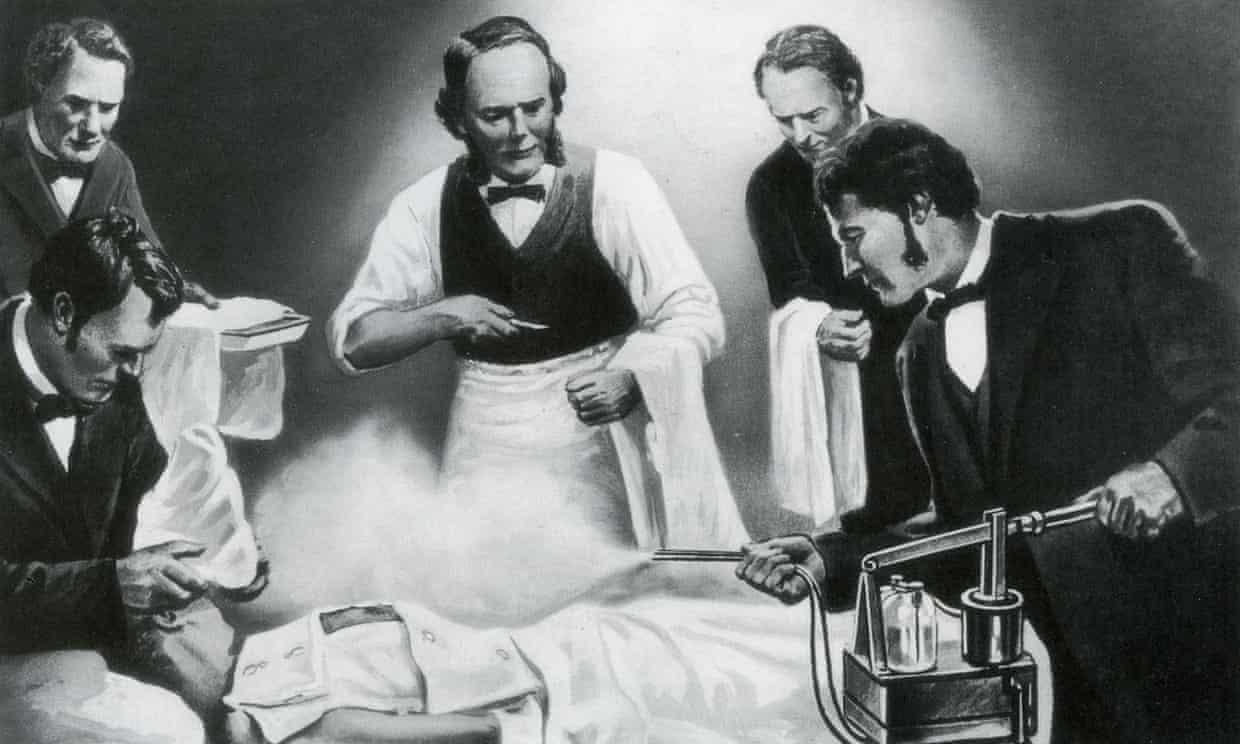 "If there had to be a father of handwashing it would be Ignaz Semmelweis," says Miryam Wahrman, a professor of biology at William Paterson University in New Jersey and author of The Hand Book: Surviving in a Germ-Filled World. While working at Vienna General hospital, the Hungarian doctor was at the forefront of a more scientific approach to medicine. Faced with a doctor-led maternity ward in which maternal deaths from the dreaded childbed fever were significantly higher than in the midwife-run clinic there, he racked his brain for clues as to why.
"If there had to be a father of handwashing it would be Ignaz Semmelweis," says Miryam Wahrman, a professor of biology at William Paterson University in New Jersey and author of The Hand Book: Surviving in a Germ-Filled World. While working at Vienna General hospital, the Hungarian doctor was at the forefront of a more scientific approach to medicine. Faced with a doctor-led maternity ward in which maternal deaths from the dreaded childbed fever were significantly higher than in the midwife-run clinic there, he racked his brain for clues as to why.
Germs were yet to be discovered, and it was still believed in the 1840s that disease was spread by miasma - bad smells in the air - emanating from rotting corpses, sewage or vegetation. Victorians kept their windows firmly shut against such malevolent forces. So it didn\'t seem a problem that trainee doctors at Vienna General would hang out in the morgue dissecting corpses to figure out what had rendered them dead and then pop up to the maternity ward to deliver a baby without washing their hands.
One of them then accidentally got cut by a scalpel during a dissection and died, seemingly of the same childbed fever the mothers had been getting. Semmelweis hypothesised that cadaverous particles from the morgue were to blame, and that such particles on the hands of doctors were making their way into women\'s bodies during childbirth.
Continued here
Tuesday 23rd April 2024
Keep it clean: The surprising 130-year history of handwashing
-->
-->
Top stories this week